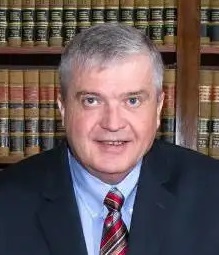Sex Crimes Attorney in Louisiana: How to Choose the Right One
Sex Crimes Attorney in Louisiana | David E. Stanley, APLC
Table of Contents
ToggleFinding a sex crimes attorney in Louisiana can be challenging, especially if you or someone close to you is facing criminal charges. These cases often involve sensitive issues, complex legal processes, and potentially serious consequences. Whether the situation involves a misunderstanding, a disputed allegation, or an ongoing investigation, it’s important to have a legal advocate who understands the law and can provide informed guidance. Working with someone familiar with Louisiana’s legal system helps protect your rights and navigate the case with clarity.

David E. Stanley, APLC, represents individuals facing sex crime charges throughout Louisiana; with knowledge of the state’s legal system, Attorney David E. Stanley develops tailored defense strategies and works directly with clients at each stage of the case, from investigation to trial. If you or someone you know is facing charges, having legal representation can significantly affect how the case progresses. Attorney David E. Stanley approaches each matter with care, professionalism, and a commitment to protecting client rights.
What to Look for When Choosing a Sex Crimes Attorney in Louisiana
Familiarity with Louisiana Criminal Law
A Louisiana-based sex crimes attorney should understand local statutes, legal procedures, and sentencing guidelines. Every state handles these charges differently. An attorney who works within Louisiana courts brings insight into how regional courts interpret and manage sex offense cases. An attorney who regularly practices in Louisiana courts brings valuable experience regarding how local courts may interpret and manage sex offense cases; however, each case is unique, and outcomes cannot be guaranteed. They may also be more familiar with court procedures, evidentiary standards, and how judges and prosecutors approach these matters.
Experience With Related Cases
Reviewing an attorney’s experience with charges like sexual battery, indecent behavior with juveniles, or internet-related offenses can help you evaluate their approach. While past outcomes such as charge dismissals, reductions, or favorable resolutions may illustrate an attorney’s experience, it is important to note that past results do not guarantee or predict similar outcomes in future cases, as each matter depends on its specific facts and applicable law. Discussing previous cases can help you understand how the attorney approaches legal challenges.
Communication and Responsiveness
Clear and respectful communication is essential. Choose an attorney who explains your rights and options in a way you can understand. Regular updates, prompt responses, and openness to your questions can help you feel informed and supported. Good communication builds trust and allows for better participation in your own defense.
Defense Strategy
No two cases are alike. A qualified attorney will review your situation carefully and recommend a legal strategy tailored to the facts and circumstances of your case, but cannot guarantee any particular result. This might include analyzing evidence, cross-examining witnesses, or negotiating with the prosecution. They may also consult forensic experts or review the conduct of the investigation. Ask how they plan to handle your case and whether they have handled similar matters before. Keep in mind that each case is unique, and outcomes depend on the specific facts, applicable law, and circumstances involved. No attorney can guarantee a particular result. Early consultation with an attorney can help protect your rights and preserve important evidence.

Handling Sensitive Matters With Care
Sex crime charges often involve emotional and private matters. A thoughtful attorney treats clients with respect and maintains confidentiality. Their role includes providing steady support without judgment. Look for someone who listens, treats you with dignity, and understands the personal impact such accusations can have.
Legal Reputation and Feedback
An attorney’s reputation in the legal community can provide insight into their professional conduct. Feedback from previous clients, peer reviews, and courtroom interactions can all reflect their work ethic and reliability. While not the only factor, an attorney’s reputation can be a helpful consideration when evaluating their professionalism and experience. However, reputation alone does not determine the outcome of any legal matter, and no result can be promised based solely on reputation.
Building Trust
Trust matters when sharing your version of events. You should feel comfortable speaking openly with your attorney. During a consultation, notice whether the attorney takes your concerns seriously, listens attentively, and respects your input. Transparency and mutual understanding form the foundation of a strong attorney-client relationship.
Dedication to Your Case
Some attorneys manage more cases than they can reasonably handle. Ask whether the attorney you meet with will be directly involved and how much time they expect to dedicate to your defense. A committed attorney should show that your case is a priority through thorough preparation, regular updates, and focused advocacy.
Frequently Asked Questions
In Louisiana, How Are Sex Offenses Defined?
In Louisiana, sex offenses are defined by specific statutes, such as rape, sexual battery, and indecent behavior with juveniles. The law distinguishes offenses based on factors such as the presence or absence of consent, the age or capacity of the alleged victim, and the conduct involved. Other offenses, such as indecent behavior with juveniles (La. R.S. 14:81) or possession of child pornography (La. R.S. 14:81.1), involve individuals who are legally unable to consent due to age or mental capacity, as defined by Louisiana law.
What Kind of Evidence Is Used in Sex Crime Cases?
Evidence used in sex crime cases may include physical findings, digital records, witness accounts, and statements from those involved. Medical reports, forensic results, and electronic communications can also be significant. In Louisiana, credible testimony may be sufficient to support a charge, but corroborating evidence such as physical findings or digital records can strengthen the prosecution’s case. However, whether testimony alone is sufficient is determined on a case-by-case basis by the court. The prosecution must prove guilt beyond a reasonable doubt. The prosecution bears the burden of proof, and the strength of the evidence is critical in determining how the case is resolved in court. Individuals accused of a crime are presumed innocent until proven guilty beyond a reasonable doubt.
What Helps Build a Strong Defense in These Cases?
A strong defense often involves identifying reasonable doubt in the prosecution’s claims. This may include questioning the credibility of testimony, reviewing how evidence was obtained, or presenting alternative explanations. An attorney may also rely on expert input or point out errors in the investigation process. While outcomes vary, early involvement from a knowledgeable attorney could help you better understand your legal options and develop an appropriate defense strategy.
How Do You Defend Against a Sex Offense Charge in Louisiana?
Defense against a sex offense charge in Louisiana depends on the facts of the case. Common defense approaches include asserting mistaken identity, challenging the credibility or sufficiency of the evidence, or demonstrating that no offense occurred. In certain cases, a defense may be based on consent; however, Louisiana law does not recognize consent as a valid defense in cases involving minors or individuals legally unable to consent. A sex crimes attorney in Louisiana will examine available evidence, assess procedural issues, and look for weaknesses in the prosecution’s case. In some instances, legal or investigative errors may lead to dismissal or reduced charges, depending on the circumstances and court decisions.
Sex Crimes Attorney in Louisiana

Choosing the right sex crimes attorney in Louisiana can influence how your case unfolds and what legal options you may have. These cases are serious, but with trusted legal guidance, you can approach the process with greater understanding and support.
At David E. Stanley, APLC, we understand how stressful and complex these matters can be. We are committed to upholding your rights and helping you move through the legal process with care and professionalism.
David E. Stanley, APLC
1055 Laurel Street, Suite 2 Baton Rouge, LA 70802
225-926-0200
Disclaimer: This article provides general information and does not serve as legal advice. For legal concerns, consult a licensed attorney. Viewing or interacting with this content does not create an attorney-client relationship. This includes submitting a form, leaving a comment, sending a message, making a call, or leaving a voicemail. Laws may vary by jurisdiction. Laws are subject to change; always verify current legal requirements with a qualified professional.
© All Rights Reserved.

David Stanley is the founder and principal of David E. Stanley APLC. Since 1983, Mr. Stanley has successfully practiced law from his office in Baton Rouge, Louisiana.

